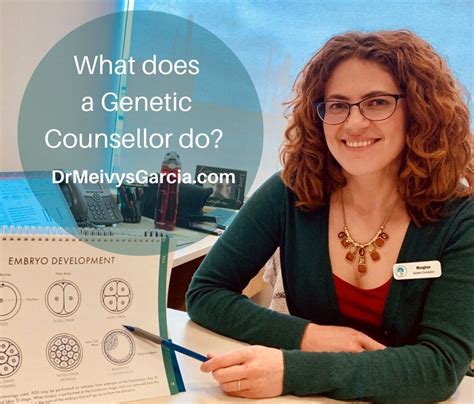Genetics is a fascinating and rapidly advancing field that plays a crucial role in understanding and predicting human health and disease. As genetic testing becomes more accessible and affordable, the demand for skilled professionals in genetic counseling continues to rise. In this blog post, we will dive into the world of genetic counseling programs at universities in the United States. From understanding the basics of genetic counseling to exploring the career outlook for genetic counselors, we will cover it all. Whether you’re a prospective student looking to choose a genetic counseling program or simply interested in this field, we will provide valuable insights into the curriculum, internship opportunities, real-life applications, and research collaborations at these programs. Join us as we unravel the complexities of genetics and genetic counseling, and discover the endless possibilities in this rewarding and impactful career.
Table of Contents
Understanding the Basics of Genetic Counseling
Genetic counseling is a specialized field of healthcare that focuses on helping individuals and families understand the genetic aspects of diseases and conditions. Genetic counselors are trained professionals who provide information and support to people who may be at risk for inherited conditions. They work closely with patients to assess their risk, educate them about genetic testing options, and help them make informed decisions about their health.
Genetic counseling sessions typically involve a detailed family history review, risk assessment, and discussion of testing options. Genetic counselors also provide emotional support and guidance to individuals and families as they navigate the complex and often overwhelming world of genetic information. They explain the implications of test results, help patients understand their options for managing or preventing genetic conditions, and connect them with other healthcare professionals as needed.
One of the key principles of genetic counseling is the focus on informed consent and patient autonomy. Genetic counselors are committed to empowering their clients to make decisions that are right for them, and they prioritize open communication and respect for individual values and beliefs. They also stay up-to-date with the latest developments in genetics and genomics, ensuring that they can provide accurate and current information to their clients.
Overall, genetic counseling is an essential part of modern healthcare, and it plays a crucial role in helping individuals and families understand and manage their genetic risks. By providing education, support, and personalized guidance, genetic counselors help their clients make informed decisions about their health and wellbeing.
Exploring the Role of Genetic Counselors
Genetic counselors play a crucial role in the healthcare industry, providing valuable expertise and support to individuals and families dealing with genetic conditions and hereditary risks. These professionals are trained to assess, educate, and counsel individuals on the complex genetic aspects of disease and disability, helping them make informed decisions regarding their healthcare and family planning.
One of the primary responsibilities of genetic counselors is to help patients understand their genetic test results and the implications for their health and well-being. They work closely with healthcare providers to interpret genetic data and provide personalized information and guidance based on each patient’s unique genetic makeup and family history.
Additionally, genetic counselors offer emotional support and advocacy for patients, helping them navigate the often overwhelming journey of managing genetic conditions and making difficult decisions about their healthcare. They also play a key role in facilitating communication between patients, healthcare providers, and other professionals involved in their care.
Overall, the role of genetic counselors is multifaceted, encompassing a diverse range of duties that are essential for guiding individuals through the complex landscape of genetic healthcare and empowering them to make informed choices about their genetic health.
Choosing a Genetic Counseling Program
When it comes to choosing a genetic counseling program, there are several important factors to consider. The first step is to research and identify accredited programs that offer the specific curriculum and training opportunities you are seeking. It’s important to look for programs that are recognized by the Accreditation Council for Genetic Counseling (ACGC) to ensure they meet the standards of the profession.
Next, consider the location of the program. Are you willing to relocate for your studies, or do you prefer to attend a program closer to home? Additionally, consider the size of the program and the faculty-to-student ratio. Do you thrive in smaller, more intimate learning environments, or do you prefer a larger program with more diverse opportunities?
Another important aspect to consider is the program’s clinical training opportunities. Look for programs that offer a variety of clinical settings and experiences, such as hospitals, research institutions, and community outreach programs. It’s also important to consider the program’s internship and fieldwork opportunities, as these experiences will be crucial in shaping your future career as a genetic counselor.
Finally, consider the overall reputation and success of the program. Research the program’s alumni and where they are working now. Does the program have a strong track record of preparing graduates for successful careers in genetic counseling? It’s important to choose a program that will provide you with the education and training you need to excel in this rapidly growing field.
Curriculum and Course Requirements for Genetic Counseling Programs
When pursuing a career in genetic counseling, it is important to understand the curriculum and course requirements for genetic counseling programs. These programs are designed to provide students with the knowledge and skills necessary to become competent genetic counselors.
Students can expect to take a variety of courses, including genetics, psychology, counseling techniques, and medical ethics. In addition to these core courses, students will also participate in clinical rotations where they will have the opportunity to apply their knowledge in real-life situations.
Furthermore, many genetic counseling programs require students to complete a research project or thesis as part of their degree requirements. This provides students with the opportunity to conduct original research in the field of genetic counseling and contribute to the growing body of knowledge in this field.
Overall, the curriculum and course requirements for genetic counseling programs are designed to provide students with a well-rounded education that prepares them for the challenges of a career in genetic counseling.
Internship and Clinical Training Opportunities
Internship and clinical training opportunities are an essential part of a genetic counseling program. Hands-on experience is crucial for students to gain practical skills and knowledge that will prepare them for their future careers. During these internships, students have the chance to work directly with patients, genetic counselors, and other healthcare professionals in a clinical setting.
These opportunities allow students to apply the theoretical knowledge they have gained in the classroom to real-life situations. They learn how to conduct genetic risk assessments, provide emotional support to patients and families, and communicate complex genetic information in a way that is easily understood. Internships also provide students with the chance to observe how genetic counselors collaborate with geneticists and other members of the healthcare team.
Furthermore, internship and clinical training opportunities give students the opportunity to develop their professional skills and ethical decision-making abilities. They learn about the importance of confidentiality, informed consent, and cultural competence in the field of genetic counseling. These experiences are invaluable for students as they prepare to enter the workforce as genetic counselors.
Finally, internships and clinical training opportunities can open doors for students to establish valuable professional connections in the field. Many students may have the chance to work with practicing genetic counselors who can serve as mentors and provide guidance as they begin their careers. These connections can be beneficial for students as they seek employment after completing their genetic counseling programs.
Real-Life Applications: Case Studies and Patient Interactions
Real-life applications are an integral part of genetic counseling programs, providing students with valuable experience and insight into the complexities and nuances of working with patients and families. Case studies offer an opportunity for students to apply their knowledge and skills to real-world scenarios, honing their ability to analyze genetic information, communicate effectively, and provide empathetic support. Patient interactions allow students to develop the interpersonal and counseling skills necessary for building trust, fostering understanding, and guiding individuals through the decision-making process.
By engaging with case studies and patient interactions, future genetic counselors gain a deeper understanding of the ethical, legal, and social implications of genetic information and testing. They learn to navigate sensitive topics such as reproductive options, family dynamics, and personal beliefs, gaining insight into the diverse perspectives and experiences of those seeking genetic counseling. Through these real-life experiences, students are better prepared to address the multifaceted challenges that arise in a clinical setting and provide comprehensive, personalized care to each unique individual and family.
Case studies and patient interactions also serve as a platform for students to collaborate with healthcare professionals, geneticists, and other specialists, fostering a multidisciplinary approach to genetic counseling. By participating in team-based care and consulting with experts in various fields, students learn to integrate genetics into broader healthcare contexts, contributing to more holistic and integrated patient care. These experiences also offer opportunities for students to engage in research, quality improvement initiatives, and community outreach, furthering their impact on the field of genetic counseling.
Ultimately, real-life applications in genetic counseling programs not only enhance students’ clinical skills and knowledge but also shape their professional identity and commitment to ethical, patient-centered care. These experiences provide a bridge between academic learning and practical application, preparing students to navigate the complexities and uncertainties of genetic information with empathy, expertise, and confidence.
Research Opportunities in Genetic Counseling Programs
Genetic counseling programs offer various research opportunities for students to explore and contribute to the field. These opportunities enable students to gain practical experience and make important contributions to the evolving field of genetic counseling.
Students in genetic counseling programs have the chance to engage in research projects that focus on genetic testing technologies, counseling methods, and ethical considerations in genetic counseling. These projects provide students with valuable insights into the complexities of genetic counseling and the potential impact of genetic information on individuals and families.
By participating in research opportunities, students can develop critical thinking and analytical skills, as well as enhance their understanding of the scientific and ethical aspects of genetic counseling. Research experience also allows students to stay updated on the latest advancements in the field, preparing them for the challenges they may encounter as practicing genetic counselors.
Additionally, research opportunities in genetic counseling programs may involve collaboration with faculty members, geneticists, and other healthcare professionals. This collaboration not only enhances the quality of research but also fosters interdisciplinary teamwork, reflecting the real-world scenarios genetic counselors may encounter in their professional careers.
Collaborations with Geneticists and other Healthcare Professionals
Collaborations with geneticists and other healthcare professionals play a crucial role in the field of genetic counseling. It is essential for genetic counselors to work closely with geneticists to accurately assess and diagnose genetic conditions in patients. By collaborating with geneticists, genetic counselors can provide comprehensive care and support to individuals and families affected by genetic disorders.
Furthermore, working with other healthcare professionals such as physicians, nurses, and psychologists is also vital in the practice of genetic counseling. These collaborations allow for a multidisciplinary approach to patient care, ensuring that all aspects of a patient’s physical and emotional well-being are addressed.
In addition, partnerships with researchers and public health professionals enable genetic counselors to stay updated on the latest advancements in the field of genetics and genomics. This knowledge is invaluable in providing evidence-based counseling and guidance to individuals at risk of genetic conditions.
Overall, collaborating with geneticists and other healthcare professionals is essential for genetic counselors to provide the highest level of care and support to their patients. These partnerships allow for a holistic and informed approach to genetic counseling, ultimately benefiting the individuals and families seeking guidance in managing their genetic health.
Career Outlook for Genetic Counselors
Genetic counselors play a crucial role in the healthcare industry, providing support and guidance to individuals and families who may be at risk for genetic disorders. As the field of genetics continues to advance, the demand for genetic counselors is expected to rise. With the increased availability of genetic testing and personalized medicine, genetic counselors are needed to help interpret and communicate complex genetic information to patients and their healthcare providers.
In addition, the expanding field of genomics and precision medicine offers genetic counselors opportunities to work in a variety of settings, including hospitals, research institutions, private practices, and public health agencies. This diverse range of career opportunities allows genetic counselors to specialize in areas such as cancer genetics, prenatal genetics, cardiovascular genetics, and more, providing them with the chance to make a significant impact in the lives of individuals and families affected by genetic conditions.
Furthermore, the job outlook for genetic counselors is favorable, with the profession projected to experience a much faster than average growth rate. According to the Bureau of Labor Statistics, employment of genetic counselors is expected to grow by 21% from 2019 to 2029, driven by advances in genetic research and testing technologies. This anticipated growth in demand for genetic counselors indicates a promising career outlook for individuals interested in pursuing a career in this rapidly evolving field.
Overall, genetic counseling offers a rewarding career path for individuals who are passionate about genetics, patient care, and helping others make informed decisions about their health. With the growing demand for genetic counselors and the expanding role of genetics in healthcare, the career outlook for genetic counselors is bright, providing an exciting and impactful career path for those entering the field.
Comparing Genetic Counseling Programs in the US
When considering a career in genetic counseling, one of the most important decisions a prospective student will make is choosing the right program to attend. With the increasing demand for genetic counselors, there are now a variety of programs available in the United States, each with its own unique features and strengths.
One of the key factors to consider when comparing genetic counseling programs is the accreditation status. Programs that are accredited by the Accreditation Council for Genetic Counseling (ACGC) have met the rigorous standards set by the organization, ensuring that students receive a high-quality education and training. Prospective students should also consider the program’s curriculum and course requirements, as well as the availability of internship and clinical training opportunities, as these factors can greatly impact the overall educational experience.
Another important aspect to consider when comparing genetic counseling programs is the research opportunities available. Research is a crucial component of the genetic counseling field, and programs that offer opportunities for students to engage in research projects can provide valuable hands-on experience and contribute to the advancement of the field. Additionally, prospective students should consider the collaborations that the program has with geneticists and other healthcare professionals, as these collaborations can provide students with valuable networking opportunities and exposure to different areas of the field.
Finally, when comparing genetic counseling programs, it’s important to consider the career outlook for graduates. Programs that have a strong track record of producing successful and well-prepared genetic counselors can be an attractive option for prospective students. Additionally, programs that offer career resources and support for students as they enter the job market can provide an added advantage.





